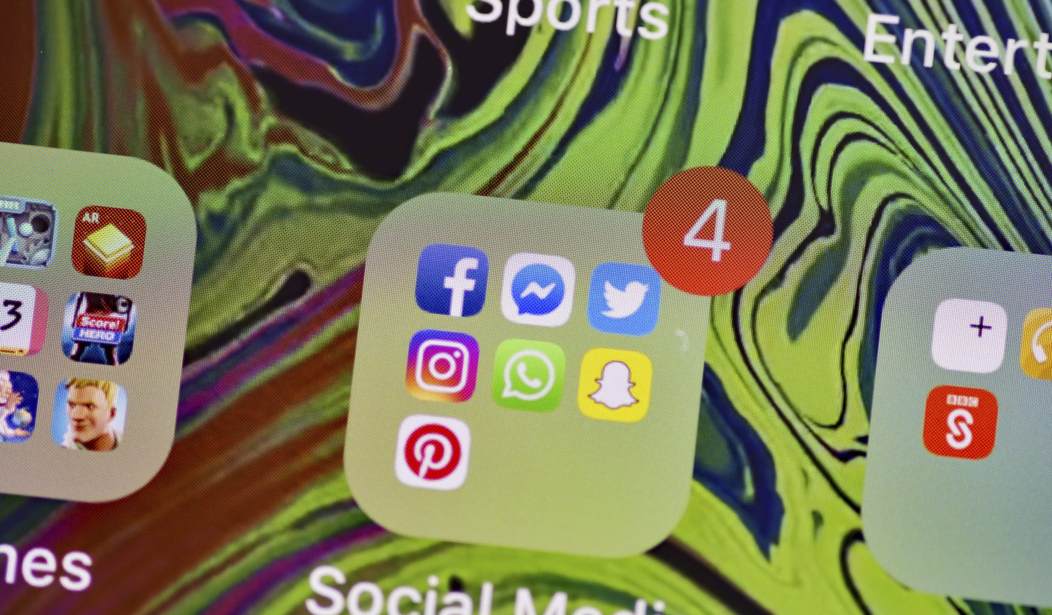On Thursday, a pastor who previously lived a homosexual lifestyle made his appeal in a unique case regarding discrimination and Section 230 of the Communications Decency Act (CDA), which protects Big Tech companies from liability for the content third-parties post on their platforms. The pastor is suing Vimeo for discrimination on the basis of sexual orientation and religion after the platform banned him from publishing videos telling the stories of people who identify as ex-gay.
“This is a case of grave importance because it is about whether big tech platforms can unlawfully discriminate against persons based on religion or sexual orientation,” attorney Nada Higuera argued on Thursday in the Second Circuit Court of Appeals.
Southern California Christian Pastor Jim Domen sued Vimeo, claiming the platform discriminated against him on the basis of his Christian religion and his sexual orientation as a former homosexual. The lower court granted Vimeo’s motion to dismiss the lawsuit, claiming Section 230 allowed the company to discriminate against the pastor. This logic echoes a Ninth Circuit Court of Appeals ruling along similar lines.
“This case is significant because the lower court and the Ninth Circuit have interpreted the federal Communications Decency Act to give immunity to Big Tech whenever such a company commits unconscionable acts of discrimination in their online filtering decisions against protected classes of individuals – for example, classifications based on race, religion, color creed or sexual orientation,” attorney Robert Tyler, Partner at Tyler & Bursch, LLP and President of Advocates for Faith & Freedom, said in a statement.
According to Higuera, the lower court’s interpretation of Section 230 allows “a company like Vimeo, YouTube or even Amazon [to] decide that it will not allow someone to hold an account with their site just because they are of a particular race or religion. This invidious discrimination is normally unlawful for businesses operating in any states; but according to this federal district court, the CDA exempts Big Tech from states’ nondiscrimination laws when filtering content or deciding who is allowed to access the service they offer. This should concern everyone from left to right.”
Section 230 May Be a Lifeline for This Conservative Crowdfunding Platform Shut Down by the Government
Pastor Domen identifies as a former homosexual who is now married to a woman and has three children. The pastor operated the religious non-profit Church United, posting videos on Vimeo via Church United’s account. Vimeo terminated that account in December 2018, claiming that Church United’s videos “harass, incite hatred, or include discriminatory or defamatory speech.”
Vimeo claimed that some of Church United’s 89 videos constituted harassment because Pastor Domen and other ex-gays spoke about the help they received through counseling and talk therapy, the kind of therapy wrongly demonized as “conversion therapy.” The videos in question involved people telling their personal stories about how therapy helped them put their homosexual lifestyles behind them.
The lawsuit claims Vimeo removed Church United’s account because the Big Tech company disapproves of Pastor Domen’s sexual orientation and religion.
“There are many individuals like me who were once engaged in a same-sex lifestyle that are now ostracized for our personal intimate decisions regarding our sexual orientation,” Pastor Domen said in a statement. “As a Pastor, I just want the ability to share the good things that have happened in my life as a Christian and to help unify Pastors in California to engage in the world around them.”
Domen filed the lawsuit on June 25, 2019. On January 15, 2020, two days after oral arguments, Magistrate Judge Stewart D. Aaron of the Southern District Court of New York granted Vimeo’s motion to dismiss, citing the CDA.
Attorneys with Tyler & Bursch, the law firm representing Pastor Domen, argue that Congress did not intend to protect internet platforms from federal anti-discrimination law when it passed Section 230 as part of the Communications Decency Act in 1996.
“I am grateful for a legal firm like Tyler & Bursch who is willing to represent Americans who have blatantly been discriminated against for their sexual orientation and religious beliefs,” Domen said in a statement on the oral arguments in the appeal Thursday.
Court Strikes Down Speech Bans That Aimed to Fight ‘Conversion Therapy’
“Specifically, as a Super Minority, a Former homosexual, I was targeted because I am now married to a woman with three biological children. Vimeo also targeted Church United, a non-profit religious organization, by deleting all of Church United’s videos created over a 2-year period,” Domen argued. “Vimeo did these egregious actions the day after Thanksgiving (Black Friday) in 2018 during a 4-day holiday. Then, days later in December, Christians’ holiest month of the year, Vimeo completely wiped-out Church United’s account, which crippled the organization financially.”
However the Second Circuit rules, Domen’s case raises important questions about the limits of Section 230’s liability protections.
President Donald Trump has called for the elimination of Section 230, but the scope of its liability protection remains unclear. The Federal Communications Commission (FCC) also announced it would draft a new rule clarifying Section 230, but it remains unclear whether this rule would be finalized before Trump is set to leave office next month (while the president has challenged the results of the 2020 election, it is still likely Joe Biden will enter the White House in January). Congress would do well to amend Section 230 to clarify the legislation.
Many have condemned Section 230 for supposedly protecting powerful companies like Facebook and Twitter, but the liability shield arguably provides more important protection for potential competitors to Facebook and Twitter. Newer start-ups like Parler would likely find it more difficult to navigate the regulatory climate should the government crack down on Big Tech. Section 230 may also provide a lifeline to a conservative crowdfunding platform shut down by the government.
Tyler O’Neil is the author of Making Hate Pay: The Corruption of the Southern Poverty Law Center. Follow him on Twitter at @Tyler2ONeil.









Join the conversation as a VIP Member